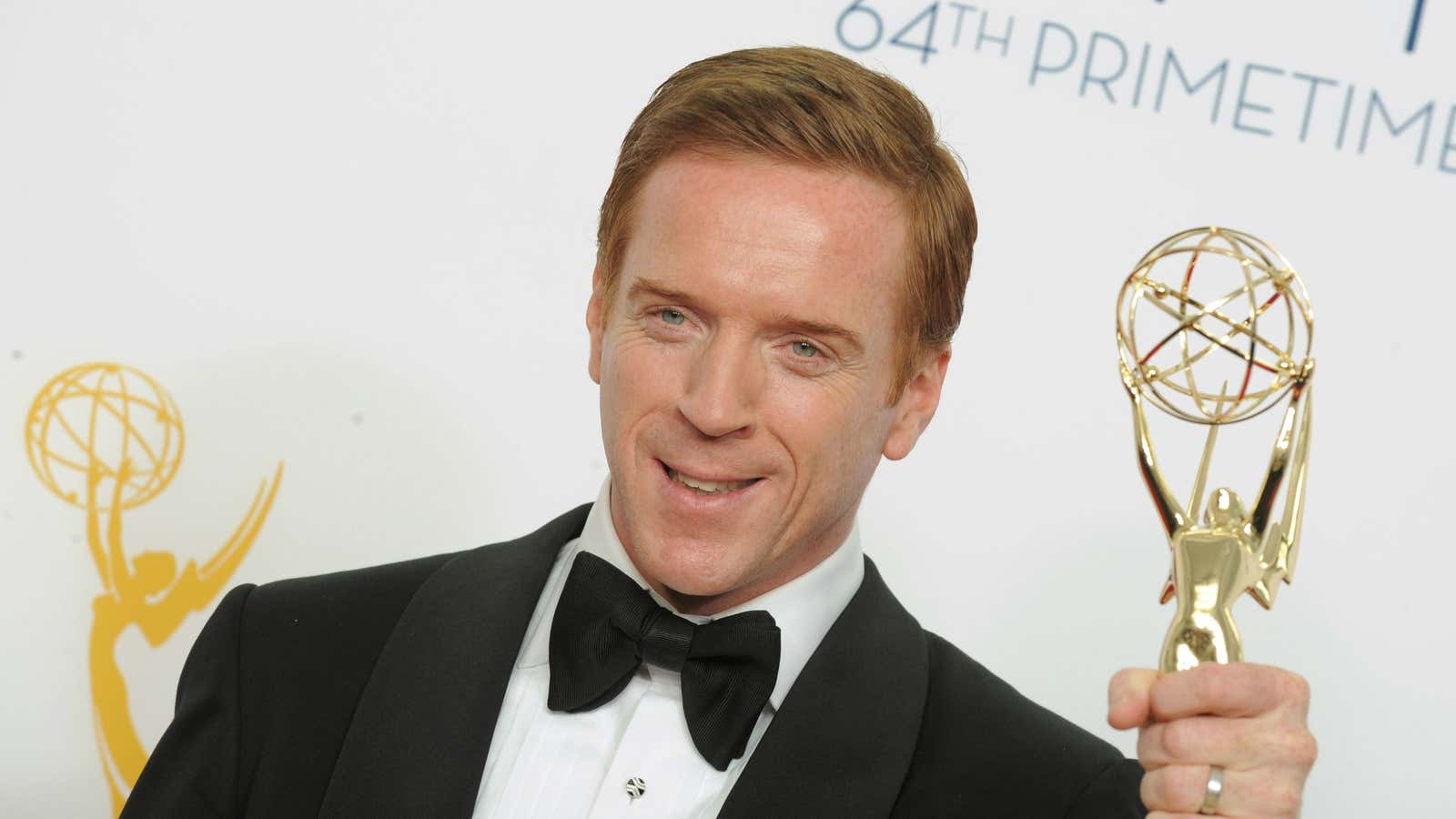The 2012 Emmy Awards was a turning point for television. It was the year major network television lost its dominance of the Emmys, and when it became clear that the best shows were ones you had to pay for.
In 2012, only three of the 12 shows nominated for best comedy or drama series were from one of the four major US television networks (ABC, CBS, NBC, and Fox). The prior year, seven of the 12 shows nominated in those categories were major network shows. In comedies, 2011 nominees Glee (Fox), The Office (NBC) and Parks and Recreation (NBC) were replaced by 2012 nominees Curb Your Enthusiasm (HBO), Girls (HBO), and Veep (HBO). In dramas, the 2011 nominees were Friday Night Lights (NBC) and The Good Wife (ABC). In 2012, they were Homeland (Showtime) and Breaking Bad (AMC).
Since 2012, the pattern has stayed constant. A Quartz analysis of Emmy Awards data shows that prior to 2012, major network shows accounted for at least 40% of all best comedy or drama nominations, but since then major network shows have not accounted for more than 25% of nominations in those categories.
This change in the best comedy and drama categories in 2012 was the culmination of a long-term trend of major networks losing ground across the Emmys generally. While nearly all Emmy nominations went to major networks in the 1970s and 1980s—the period before ambitious cable and pay channels appeared—the proportion of nominations going to major networks has fallen steadily since then. Nearly 90% of nominations went to major networks in 1987, but by 2017 that number has fallen to just 23%. The networks taking away the biggest share from the majors in the 1990s and 2000s were HBO, Showtime, and TNT, with Netflix, FX, and Amazon emerging as serious competitors in the 2010s.
The stark change in the television landscape is revealed by comparing the most nominated networks in 2011 to 2017. Three of the networks in the top 10 in 2017 (Netflix, Amazon, and Hulu) were not even making original programming in 2012. Today, Netflix has more nominations that any major network, trailing only HBO.
